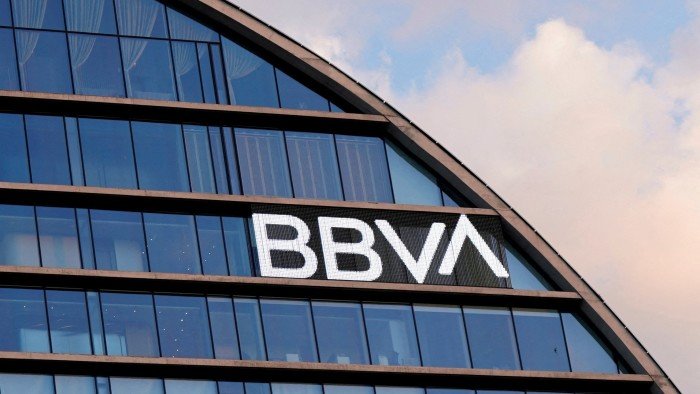Unlock the Editor’s Digest for free
Roula Khalaf, Editor of the FT, selects her favourite stories in this weekly newsletter.
The Spanish government has thrown a new obstacle into the path of BBVA’s €11bn hostile bid for rival lender Sabadell, declaring that the would-be acquirer cannot merge the two entities for at least three years.
Spain’s economy minister Carlos Cuerpo said the cabinet had decided that the two entities would have to “maintain separate legal identities and assets, as well as autonomy in the management of their activities” for three years and possibly more.
The decision, which came after a cabinet review initiated last month, means BBVA must now decide whether to accept the conditions, challenge them in the courts, or drop its bid entirely.
Carlos Torres, the BBVA chair who masterminded the bid, said on Monday that it would be “illegal” for the government to impose extra conditions.
The move also puts the Socialist-led government on a potential collision course with the European Commission. When the cabinet review was announced, Brussels warned Madrid that “there is no basis to stop an operation based on a discretionary decision by a member state government”.
Since its launch in May 2024, the hostile bid has become Spain’s most ill-tempered takeover saga in years. It is opposed by Sabadell’s board, which initially rejected a friendly approach by BBVA, as well as the business elite in Catalonia, where Sabadell has roots.
BBVA had been preparing to launch its formal tender offer to Sabadell shareholders in the coming weeks. The Spanish government’s prohibition on a full merger would come into force if BBVA’s takeover bid were successful.
Cuerpo said the banks would be required to act autonomously in areas including credit provision to small businesses, human resources and the management of their branch networks. The goal of the two separate entities must be to “maximise their value independently”, he said.
He added that the banks would have to submit reports on their actions ahead of a three-year deadline. “Once the effectiveness of this condition has been assessed, the cabinet will determine whether to extend the duration of this condition for a further two years, from three to five years,” he said.
Anticipating potential legal challenges, Cuerpo said the government’s ability to act in defence of small businesses, workers and regional economies was supported by Spanish law and “by the case law of the European Court of Justice”.
Sabadell said that if BBVA chose to proceed with its bid then it must provide information on the impact of the government’s conditions “both on its ability to deliver synergies and its ability to remunerate shareholders in the future. Such information is relevant to Sabadell shareholders.” BBVA declined to comment on the government’s announcement.
It was already known that after a successful takeover bid, Spanish law would give the government a separate opportunity to veto a legal merger of the two banks. However, the move nonetheless took the sector by surprise.
Last week the Financial Times reported that Sabadell had been exploring a sale of its British bank TSB as it sought to fend off BBVA’s hostile approach.
